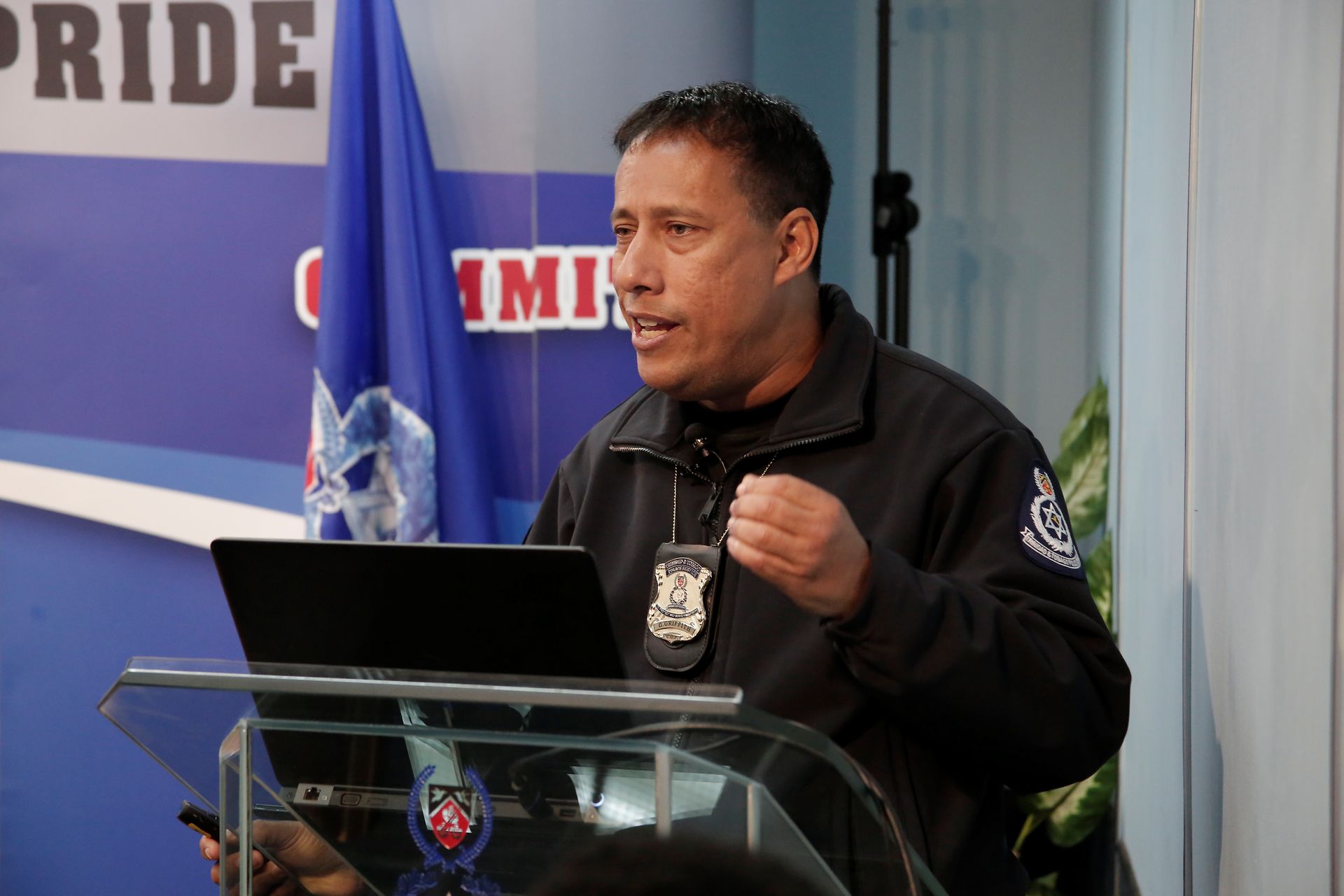(Trinidad Guardian) Commissioner of Police Gary Griffith says despite his achievements over the last year in office, murders and the fear of crime continues to be his biggest challenges.
The murder count for this year has equalled the last year’s figure with the latest killing taking place on Thursday night in Morvant.
Griffith acknowledged that had it not been for the good work of his officers, it could have been worse.
“There have been some situations where based on proper intelligence and proper operations sometimes over 10-15 persons could have been killed in one night,” said Griffith.
“Persons will try to criticise the Trinidad and Tobago Police Service based on what you would have seen with the homicide rate, but I can assure you that the homicide rate in relation to the population if you look at the number of firearms we have and the other significant factors that we encounter on a daily basis. The homicide rate could be well have been over 1,000 per annum,” said Griffith.

“If had not been for the hard work, the dedication to duty and performing beyond the call of duty where police officers have put their lives on the line to ensure they can actually reduce the homicides that were taking place.”
He said while there had been critics of the actions of the Police Service under his watch, his officers had been acting in the interest of the nation’s security.
He pointed to the recent outcry following a police operation in Las Cuevas as an example.
“There was a very successful operation that took place recently in Las Cuevas, had it not been for that there would have probably been an escalation in homicides. But the main photograph being taken was of a lady’s door being broken into rather than the fact that we did could have prevented other homicides from taking place,” said Griffith.
On Thursday, during a massive sweep in the community once controlled by murdered gang leader Vaughn “Sandman” Mieres, police detained 22 people and seized guns, ammunition.
Griffith said there were several challenges which hindered the police’s fight to arrest the murder rate; including the previous incarnation of the Firearms Act which saw several people released less than a year after being arrested and the fact that many prisoners were allowed to mastermind hits from behind bars.
The Firearms Act was amended in Parliament recently and increases the penalty for offenders—up to life imprisonment on the third conviction.
Prisoners ordered 50 killings
The Commissioner said at least 50 murders had be conducted following orders sent from the nation’s prisons.
“There have been a number of different factors that we can look at, that it is much more than just the Trinidad and Tobago Police Service. The access to prisoners calling shots from the inside. Over 50 homicides this year, through intelligence gathering, have been related to persons in prisons calling hits on persons,” said Griffith, who said there would soon be a collaboration with the Prisons Service to curtail such acts.
Griffith said despite the challenges, as head of the organisation he had been making moves every week to improve the Police Service.
He said over 75 policies had put in place with the establishment of the Special Operations Response Team, and the reduction of the overtime payments from over $300 million to $126 million as some of his achievements in the past year.
Conversely, Griffith said in his first year had not been properly able to budget for his plans and was looking forward to doing so in his second year.
He also lauded the training work done for officers so that a Gender-Based Violence Unit can be established in the coming year.
Griffith noted that about 40 murders a year are connected to domestic violence.
He said that with the establishment of this unit more victims of domestic violence may be willing to come forward with their reports without fear of embarrassment or stigmatisation.
Griffith said he aimed to reduce the murder toll by 10 per cent annually for the next decade, which would halve the murder count in five years.
However, he said that this would not necessarily lead to a public perception that crime is down.
“Crime reduction and the perception and fear of crime are two different things. In 1999, there was a certain Prime Minister where the homicide rate was 95. And the country thought that he was failing because they still spoke about how he threw his hands in the air. And the homicide rate was less than 100, so it meant that even though the homicide rate was low the perception and fear of crime was still there,” said Griffith, “My operation is two-fold, it is to reduce crime but to also take away the perception and fear of crime.”
During the press conference, Griffith also showcased the brand new police badge, similar to those used by police officers in the US, which would be added to officer’s uniform in the coming year.








